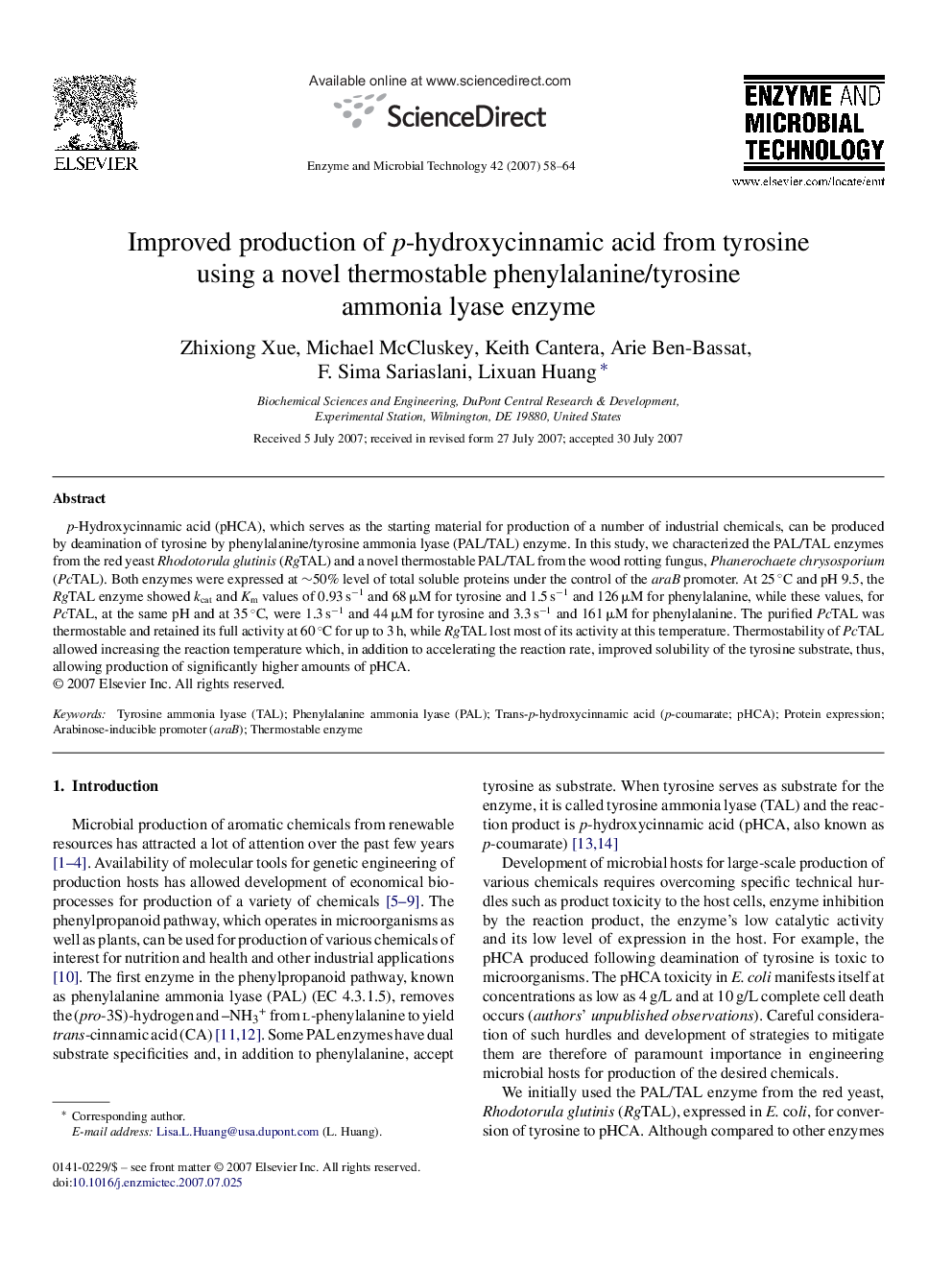| کد مقاله | کد نشریه | سال انتشار | مقاله انگلیسی | نسخه تمام متن |
|---|---|---|---|---|
| 18603 | 42727 | 2007 | 7 صفحه PDF | دانلود رایگان |

p-Hydroxycinnamic acid (pHCA), which serves as the starting material for production of a number of industrial chemicals, can be produced by deamination of tyrosine by phenylalanine/tyrosine ammonia lyase (PAL/TAL) enzyme. In this study, we characterized the PAL/TAL enzymes from the red yeast Rhodotorula glutinis (RgTAL) and a novel thermostable PAL/TAL from the wood rotting fungus, Phanerochaete chrysosporium (PcTAL). Both enzymes were expressed at ∼50% level of total soluble proteins under the control of the araB promoter. At 25 °C and pH 9.5, the RgTAL enzyme showed kcat and Km values of 0.93 s−1 and 68 μM for tyrosine and 1.5 s−1 and 126 μM for phenylalanine, while these values, for PcTAL, at the same pH and at 35 °C, were 1.3 s−1 and 44 μM for tyrosine and 3.3 s−1 and 161 μM for phenylalanine. The purified PcTAL was thermostable and retained its full activity at 60 °C for up to 3 h, while RgTAL lost most of its activity at this temperature. Thermostability of PcTAL allowed increasing the reaction temperature which, in addition to accelerating the reaction rate, improved solubility of the tyrosine substrate, thus, allowing production of significantly higher amounts of pHCA.
Journal: Enzyme and Microbial Technology - Volume 42, Issue 1, 3 December 2007, Pages 58–64